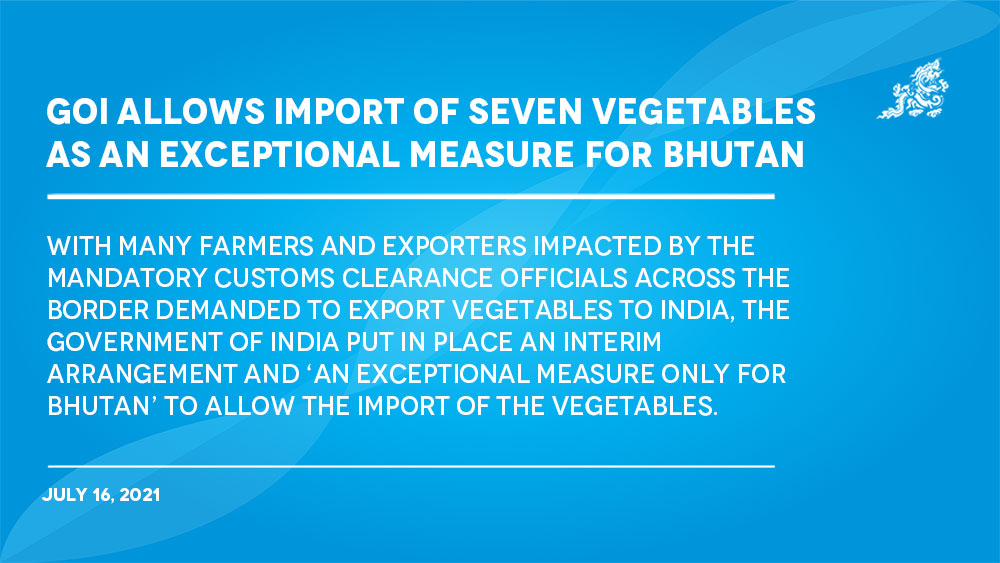Chhimi Dema
With many farmers and exporters impacted by the mandatory customs clearance officials across the border demanded to export vegetables to India, the government of India put in place an interim arrangement and ‘an exceptional measure only for Bhutan’ to allow the import of the vegetables.
The Indian Embassy in Thimphu issued a notification on July 14 to the foreign ministry that their government decided to allow the import of seven crops through the plant quarantine station in Jaigaon.
This means the seven vegetables, including chilli, beans, cabbage, cauliflower, carrot, peas and soybean would be allowed to export without any hurdles now.
The seven vegetables were not included in the Plant Quarantine (Regulation of Import into India) Order, 2003, which regulates import and prohibition of import of plants and plants product into India.
The notification stated that the Indian government had posted a plant protection officer at the Plant Quarantine Station in Jaigon to facilitate the plant quarantine works.
It also stated that the Indian government had lifted the import of potatoes ‘freely, without any license up to June 30, 2022’.
Meanwhile, with the export to India at halt during peak production time in the country, farmers faced difficulties to market their farm produce.
Kuensel previously reported that about 7.6 metric tonnes (MT) of ginger belonging to Samtse farmers are stored in Food Corporation of Bhutan Limited’s (FCBL) auction yard as the export from the dzongkhag was stopped.
Moreover, cabbage growers of Naja and Dawakha gewogs in Paro are still facing challenges in marketing cabbage.
Agriculture Minister Yeshey Penjor said the export of produces would resume once the lockdown lifts in Phuentsholing.
He said the government was continuing the buy-back scheme and redistributing vegetables in the country. “The government buys potato, cardamom, areca nut, ginger, cabbage, beans, carrot, maize and paddy under the buy-back scheme.”
The National Post Harvest Centre in Paro, Bhutan Agro Industries Limited, and private sector industries were also buying the agricultural produce from farmers for value addition of the produces.
The country through the FCBL exports roughly from 25,000MT to 32,000MT of potatoes, and 3,500MT to 5,000MT of vegetables to India in a year.
Edited by Tashi Dema


